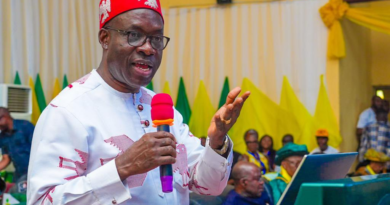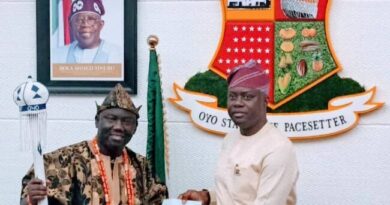Three Katsina Lawmakers Defect from PDP to APC Citing Internal Crisis
In a significant political shift, three members of the House of Representatives from Katsina State have left the opposition Peoples Democratic Party (PDP) to join the ruling All Progressives Congress (APC). The lawmakers—Salisu Yusuf Majigiri of Mashi/Dutsi federal constituency, Aliyu Iliyasu Ruma of Batsari/Safana/Danmusa, and Abdullahi Balarabe Dabai of Bakori/Danja—announced their defection on Thursday during a plenary session, where their letters were read by Speaker Tajudeen Abbas.
This latest move follows similar defections earlier in the week, when six lawmakers from Delta State left the PDP for the APC, and two legislators from Enugu State moved from the Labour Party to the PDP. These developments signal growing instability within the opposition, particularly the PDP, as more members express frustration with the party’s direction and leadership.
The Katsina lawmakers cited unresolved internal disputes and a lack of leadership as the main reasons for their exit. They described the PDP as being in a “chronic crisis” that continues to affect its unity and ability to function. According to them, these problems are present not just at the state level, but also within the national leadership, making it difficult for the party to carry out its responsibilities and maintain internal harmony.
Salisu Yusuf Majigiri stated that the PDP’s internal issues had reached an irreparable level, making it impossible for him to remain in the party. He noted that his decision to leave was necessary to continue serving his constituents effectively. Aliyu Iliyasu Ruma also pointed to the internal chaos as a major factor in his decision, adding that he was motivated by the governance style of Katsina State Governor Dikko Umar Radda and President Bola Ahmed Tinubu. He praised their leadership qualities, especially their focus on transparency, accountability, and development-focused projects.
Their departure is another blow to the PDP’s standing in the House of Representatives and provides the APC with greater strength and influence in the chamber. The ruling party now holds a stronger numerical advantage, which could be crucial for pushing forward legislative decisions and government policies. These political shifts indicate that party loyalty in Nigeria remains fluid, especially as lawmakers seek environments where they feel their political goals and the needs of their constituents are better supported.
Observers believe the trend of defections may continue if opposition parties like the PDP fail to address the internal issues that are driving members away. For the APC, the growing number of incoming lawmakers could boost its legislative agenda and provide broader support for the Tinubu administration. As Nigeria’s political landscape evolves, the effects of these changes will likely play a major role in shaping the lead-up to future elections.








